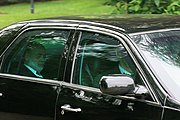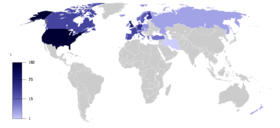Princess Diana Murder Cover-Up Turns Deadly
by Jeffrey Steinberg
Nearly
three years after the Paris car crash that claimed the lives of
Princess Diana and Dodi Fayed, the cover-up of that tragedy has taken a
deadly turn, prompting some experts to recall the pileup of corpses that
followed the assassination of President John F. Kennedy. Over the
course of four years, after President Kennedy was shot on Nov. 22, 1963,
at least 37 eyewitnesses and other sources of evidence about the crime,
including one member of the infamous Warren Commission, which oversaw
the cover-up, died under mysterious circumstances.
On
May 5, 2000, police in the south of France found a badly burned body
inside the wreckage of a car, deep in the woods near Nantes. The body
was so charred that it took police nearly a month before DNA tests
confirmed that the dead man was Jean-Paul "James" Andanson, a
54-year-old millionaire photographer, who was among the paparazzi
stalking Princess Diana and Dodi Fayed during the week before their
deaths.
From
the day of the fatal crash in the Place de l'Alma tunnel, that killed
Diana, Dodi, and driver Henri Paul, and severely injured bodyguard
Trevor Rees-Jones, Andanson had been at the center of the controversy.
Mohamed
Al-Fayed, the father of Dodi Fayed, and the owner of Harrods Department
Store in London and the Paris Ritz Hotel, has labelled the Aug. 31,
1997 crash a murder, ordered by the British royal family, and most
likely executed through agents and assets of the British secret
intelligence service MI6--with collusion from French officials, whose
cooperation in the cover-up would have been essential.
At
least seven eyewitnesses to the crash said that they saw a white Fiat
Uno and a motorcycle speed out of the tunnel, seconds after the crash.
Forensic tests have confirmed that a white Fiat Uno collided with the
Mercedes carrying Diana and Dodi, and that this collision was a
significant factor in the crash. Several eyewitnesses told police that
they saw a powerful flash of light just seconds before the Mercedes
swerved out of control and crashed into the 13th pillar of the Alma
tunnel. That bright light--either a camera flash or a far more powerful
flash of a laser weapon--was probably fired by the passenger on the back
of the speeding motorcycle. Both the motorcycle and the white Fiat fled
the crash scene, and police claim they have been unable to locate
either vehicle, or identify the drivers or the passengers.
Andanson's White Fiat
Andanson
had been in and around Sardinia during the last week of August 1997, as
Diana and Dodi vacationed in the Mediterranean. He joined several dozen
other paparazzi, who were stalking the couple's every move. He was back
in France on Aug. 30, the day that Diana and Dodi flew to Paris. And
that is where the facts about Andanson's activities and whereabouts get
very fuzzy.
For
reasons that he never revealed, sometime before dawn on Aug. 31, 1997,
less than six hours after the crash in the Alma tunnel, Andanson boarded
a flight at Orly Airport near Paris, bound for Corsica. Andanson
claimed that he was not in Paris earlier in the evening, when the crash
occurred, but he never produced any evidence, save a receipt for the
purchase of gasoline elsewhere in France (which he could have doctored
or obtained from another person), to prove he was not in the city.
His
son James and his daughter Kimberly told police that they thought their
father was grape-harvesting in the Bordeaux region. Andanson's wife
Elizabeth claimed that she had been at home with her husband all night,
at their country home, Le Manoir de la Bergerie, in Cher, until he
abruptly left for Orly, at 3:45 a.m., to catch the crack-of-dawn flight
to Corsica.
Pressed
on her version of the story, Mrs. Anderson later admitted to reporters
and police that her husband was constantly on the run, and she could
have been mistaken about the night in question. She told The Express, a
British newspaper, "It was always very difficult to recall James's
precise movements because he was always coming and going. The family was
very used to that and so never paid a great deal of attention to the
times he came and went."
What
makes Andanson's precise itinerary the night of the fatal crash so
vital is this: He owned and drove a white Fiat Uno. The car was
repainted shortly after the Aug. 31, 1997 Alma tunnel crash, and was
sold by Andanson in October 1997. And, although the official report of
the French authorities investigating the crash concluded that Andanson's
car was not involved in the crash, French forensic reports made
available to The Express told a very different story.
One
report in the files of Judge Hervé Stephan, the chief investigating
magistrate in the Diana-Dodi crash probe, described the tests on
Andanson's Fiat: "The comparative analysis of the infrared spectra
characterizing the vehicle's original paint, reference Bianco 210, and
the trace on the side-view mirror of the Mercedes shows that their
absorption bands are identical." In laymen's terms, the paint scratches
from the Fiat found on the side-view mirror of the Mercedes were
identical to the paint samples taken from the matching spot on
Andanson's Fiat.
The
report continued: "The comparative analysis between the infrared
spectra characterizing the black polymer taken from the vehicle's
fender, and the trace taken from the door of the Mercedes, show that
their absorption bands are identical."
In
short, despite the French investigators' endorsement of Andanson's
alibi, the forensic tests strongly suggested that his car may have been the white Fiat Uno involved in the fatal crash.
John
Macnamara, the Harrods director of security, and a retired senior
Scotland Yard supervisor of investigations, told reporters: "Mr.
Andanson had for some time been a prime suspect who had relentlessly
pursued Diana and Dodi prior to their arrival in Paris. We have always
believed that Andanson was at the scene and that more investigation
should have been done into his possible involvement."
Macnamara
added, "We believe that his death is no coincidence and that this is a
line of inquiry which may help to discover the truth. Was Mr. Andanson
killed because of what he knew? That is a question we want answered."
The `Suicide' Soap Opera
Needless
to say, Andanson's death stirred up renewed interest in Diana's death
at a most inopportune time for the British royals, and those in France
who abetted the cover-up. Sometime in September, an appellate court in
Paris will rule on Al-Fayed's motion to order Judge Stephan to reopen
the crash probe, based on the fact that Stephan shut down his probe
before certain vital avenues of inquiry were fully explored, and in
contradiction to his own interim report, which cited several glaring
paradoxes in the evidence that remained unresolved at the point that he
abruptly closed down his investigation last year and blamed the crash on
driver Henri Paul.
For
example, U.S. intelligence agencies, including the National Security
Agency, the Central Intelligence Agency, and the Defense Intelligence
Agency, have all acknowledged, in response to Freedom of Information Act
queries, that they have thousands of pages of documents on Princess
Diana. Those documents, for the most part, remain under lock and key. In
addition to those documents and other relevant evidence, it has been
recently exposed that a secret U.S.-U.K. joint surveillance program,
code-named "Project Echelon," had apparently been involved in
round-the-clock monitoring of Princess Diana's telephone conversations,
while she was at home in England and travelling around the globe.
Until
the contents of these U.S. government files and electronic intercepts
have been reviewed by French investigators, Al-Fayed's lawyers have
argued, the probe cannot be considered complete. And the U.S. Justice
Department continues to stonewall on indicting three Americans who were
involved in an attempted $20 million extortion of Al-Fayed in April
1998, centered around purported "CIA documents" proving that British
intelligence assassinated Diana and Dodi. While the "CIA documents"
seized from one of the plotters have been confirmed to have been clever
forgeries, questions remain about the accuracy of the content of the
documents.
In a flagrant effort to dampen interest in the Andanson factor, the June 11 Mail on Sunday, a pro-royalist tabloid, ran a story proclaiming "Wife's Affair Led to Paparazzi Man's Car Blaze Suicide." The Mail on Sunday dutifully
peddled the French government's cover story: "The millionaire
photographer who trailed Diana, Princess of Wales in St. Tropez just
days before her death, committed suicide when he discovered his wife was
cheating on him, French police have revealed. . . . The eccentric
millionaire--who was hailed by colleagues as one of the godfathers of
paparazzi photography, and who flew a Union Flag over his house to show
his love of Britain--was facing a family crisis at the time of his
death."
Mail on Sunday reporter
Ian Sparks quoted an unnamed colleague of Andanson's at the Sipa Agency
in Paris, making the preposterously contradictory claim that Andanson
"was desperate to save his marriage. We would never have guessed he
would do something so terrible." He committed suicide to save his
marriage! Right.
A
French police spokesman told Sparks, "He took his own life by dousing
himself and the car with petrol and then setting light to it."
Andanson's
widow Elizabeth, and their son James have rejected the idea that
Andanson's death was suicide. Sources close to the family told EIR that
they have pressed French officials to conduct a murder investigation
into Andanson's death 400-miles from his home. The sources dismiss the
bogus "marital problems" story and additionally report that Andanson was
in high spirits over his new job with the Sipa Agency.
The Plot Thickens
Just
after midnight on June 16, just one week after Andanson's death was
first made public, three masked men armed with handguns, broke into the
Sipa office in Paris, shooting a security guard in the foot. The three
assailants dismantled all of the security cameras in the office, and
proceeded to enter several specific offices, clearly aware of exactly
what they were looking for. They made off with several cameras, laptop
computers, and computer hard drives.
Sipa's
office employs more than 200 people, and operates 24-hours a day. The
three invaders spent three hours in the office, holding other employees
hostage. According to one of the hostages, the men were never concerned
about the French police arriving at the scene. This hostage was
convinced that the three "burglars" were themselves working for some
branch of the French Secret Service. Furthermore, the source confirmed
that Andanson had worked for French and, undoubtedly, British security
agencies.
The
owner of Sipa, Sipa Hioglou, has worked closely with French
intelligence, and, not surprisingly, has been one of the primary sources
of the "marital problems/suicide" cover story about Andanson's death,
"confessing" to French police and reporters that Andanson had confided
in him that he planned to take his own life. Hioglou, in the days
following the bizarre break-in and hostage siege of his office, also
told police that he suspected that the raid was done on behalf of a
disgruntled celebrity who was angry that her picture had been taken by a
Sipa paparazzo without her permission.
In
stark contrast, other Sipa employees have told the police that the idea
that Andanson committed suicide was preposterous, and that they suspect
that the break-in was related to his death.
What Is Going On?
The
Sipa raid, the obvious work of French Secret Service assets, raises
some very troubling questions. If Macnamara and Al-Fayed are right, and
Andanson was at the crash site on Aug. 31, 1997, and his white Fiat was
the car that collided with the Mercedes, what documentation exists of
his presence at the tunnel? What photographs exist of the crash scene,
and what do they reveal? Was some of this material seized from the Sipa
offices in the recent break-in, to assure that it never sees the light
of day?
Evidence
has recently come to light, that within hours of the crash, British and
French secret service agencies carried out a series of similar
break-ins at the homes and offices of several photo-agency personnel, in
a desperate search for photos of the crash site that may have been
transmitted in the hours immediately after the Alma tunnel collision,
and before word of Princess Diana's death was made public.
EIR has
obtained copies of sworn statements from two London-based
photographers, Darryn Paul Lyons and Lionel Cherruault, which reveal
that British intelligence was hyperactive in the hours immediately after
the Alma tunnel crash, desperately seeking any revealing photographs
that might have been spirited out of Paris.
Lyons
identified himself as the "Chairman of `Big Pictures,' . . . an
international photographic agency in London, New York, and Sydney,
specializing in obtaining and selling unique and exclusive
celebrity-based photographs." At 12:30 a.m. on Aug. 31, 1997, Lyons
received a phone call from a Paris paparazzo, Lorent Sola, who said that
he had a dozen photographs of the accident at the Alma tunnel. Sola
offered to electronically transmit the photos to Lyons immediately, and
Lyons rushed off to his office, receiving the high-resolution
photographs at approximately 3 a.m. Lyons immediately began negotiating
with several large news organizations in the United States and Britain
to sell the pictures for $250,000.
Lyons
and Sola conferred after word of Diana's death was made public, and
they decided to withdraw the offer of the pictures. Copies of the photos
were placed in Lyons' office safe.
Sometime
between 11 p.m. on Aug. 31 and 12:30 a.m. on Sept. 1, the electricity
at Lyons' office was mysteriously cut, although no other power outages
in the office building or the neighborhood occurred. Lyons, convinced
that either the office was being robbed, or bombed, called the police.
In his sworn statement, Lyons declared that he believed that secret
service agents had broken into his office and either searched the
premises or planted surveillance and listening devices.
Lionel
Cherruault, a London-based photo journalist for Sipa Agency, in his
sworn statement, reported that, at 1:45 a.m. on Aug. 31, 1997, he
received a call at his home from a freelance photographer in Florida,
informing him that he was expecting to soon be in possession of
photographs of the tunnel crash. Cherruault told the Florida contact
that he was interested. After word of Diana's death was announced, the
deal fell through.
But
Cherruault, who was in contact with his boss at Sipa, stated that, at
approximately 3:30 a.m. on Sept. 1, while he and his wife and daughter
were asleep, his home was broken into, his wife's car was stolen, and
his car was moved. Computer disks used for transmitting photographs, and
other electronic equipment, were stolen, and the front door of their
home was left wide open. Even though cash, credit cards, and jewelry
were visible in the study where the burglars stole the computer
equipment, none of those valuables were taken, making it clear that this
was not an ordinary break-in. The next day, a police officer came to
Cherruault's home and confirmed that the break-in was clearly the work
of "Special Branch, MI5, MI6, call it what you like, this was no
ordinary burglary." The officer said that the home had "been targetted."
The man, whose name Cherruault was unable to recall, assured him "not
to worry, your lives were not in danger," according to the sworn
statement.
The official police report of the Cherruault break-in, which has been reviewed by EIR, confirmed
that "The computer equipment stolen contained a huge library of royal
photographs and appears to have been the main target for the
perpetrators."
Another Thread of the Cover-Up
One
of the other still-unresolved issues in the Alma crash probe, three
years after the fact, revolves around the medical evidence. Al-Fayed has
been battling in court in Britain for the right to participate in the
official inquest into the death of Princess Diana, arguing that since
both Diana and Dodi died in the crash, therefore he should be entitled
to officially participate in both inquests. The courts have
preliminarily ruled that he has the right to contest the Royal Coroner's
rejection of his participation in the Diana inquest, which will only
occur after the French appellate process has been completed, sometime
later this year.
However,
in April of this year, the attorneys representing Al-Fayed received a
copy of a suppressed memorandum, prepared by Professors Dominique
Lecomte and Andre Lienhart, two French forensic pathologists working for
Judge Stephan, suggesting that British authorities, including the Royal
Coroner, Dr. Burton, had interceded to conceal some aspects of the
official British autopsy. The two French doctors were in London on June
23, 1998, where they met with British coroners Drs. Burton and Burgess,
forensic pathologist Dr. Chapman, and Scotland Yard Superintendant
Jeffrey Rees. They were given copies of the English autopsy report on
Princess Diana, but, according to their contemporaneous notes on the
meeting, were told that the document was provided for their "private and
personal use," and that it should not be included in the formal file of
Judge Stephan.
Any
material in that official investigative file was automatically made
available to attorneys representing all the interested parties in the
French probe, including Al-Fayed's attorneys.
This
two-and-a-half year suppression of the Lecomte-Lienhart memorandum has
once again raised serious questions about the legitimacy of the
"official" autopsy of the Princess of Wales, including questions that
arose at the time of her death, as to whether she was pregnant.
The
mayhem surrounding the deaths of Diana and Dodi, and now Andanson,
raises questions about the circumstances in Paris on that night in late
August 1997--questions that the House of Windsor in general, and Prince
Philip in particular, have long sought to suppress. The time may be fast
approaching that the well-orchestrated three-year cover-up is about to
blow apart, and at least part of the truth about the death of the
"People's Princess" see the light of day.
And that is something that the Windsors and the mandarins of MI6 may not be able to survive.
New `Diana Wars' in Britain
Put Focus on LaRouche
by Jeffrey Steinberg
On June 4, the London Daily Telegraph, the
flagship publication of the British monarchy and the Club of the Isles'
Hollinger Corp., published a crass slander against Lyndon LaRouche,
headlined "U.S. Cult Is Source of Theories." The article charged that
LaRouche, EIR, and the New Federalist newspaper were all behind a "Diana
conspiracy industry," and that LaRouche, in league with London-based
billionaire Mohamed Al Fayed, was "accusing the Queen of ordering the
assassination of Diana, Princess of Wales."
Apart
from the fact that the article was pure fiction, there were two
significant things about the story--which accompanied a much longer
article that trashed a British Independent Television (ITV) documentary,
entitled "Diana: The Secrets Behind the Crash," which had aired the
previous night, and which had been followed by a live televised debate
on the Princess's death:
First, the Daily Telegraph smear
was authored by Ambrose Evans-Pritchard, an avowed British Secret
Intelligence Service (MI6) stringer, who spent from late 1992 through
the spring of 1997 in Washington, D.C. orchestrating a similar slander
campaign against President Bill Clinton. Allowing Evans-Pritchard's
by-line to appear on the "icebox" slander of LaRouche was a blunder of
strategic significance, which underscored the truth behind LaRouche's
charge that all of President Clinton's enemies, including in the upper
echelons of the British oligarchy, are also enemies of LaRouche.
The
blunder also underscored the fact that there is a "battle royal" under
way within the British ruling class, which goes far beyond the issue of
the death of Princess Diana. The battle touches on matters of global
geopolitics, and how the British oligarchy intends to survive the worst,
systemic financial breakdown crisis in modern history.
The
"Torygraph" slander also marked a decisive break in the Club of the
Isles' policy of keeping LaRouche's name out of print in Britain. It has
been long-recognized by the City of London-centered financier
oligarchical grouping headed by the Royal Consort, Prince Philip, that
LaRouche and EIRhave been a powerful factor in exposing their
dirty machinations worldwide, and have also been an important
contributing factor in an eruption of political warfare against the
Windsors, even from among the British elites.
The LaRouche role in the Windsors' troubles came to the surface in 1994, when EIR published "The Coming Fall of the House of Windsor," a Special Report exposing
the role of Prince Philip and his World Wildlife Fund (WWF, now the
World Wide Fund for Nature), in triggering the worst genocide in modern
history in the Great Lakes region of Africa. Even as EIR's
exposés of the Windsors circulated throughout the world diplomatic
community and among factions of the British establishment, with rare
exceptions, the name "LaRouche" was banned from the British
press.[FIGURE 1]
All that changed, beginning with the June 4 Evans-Pritchard diatribe. The article not only accused LaRouche and EIR of
heading the "conspiracy industry," and of accusing "the Queen of being
the world's foremost drug dealer." But also, it linked LaRouche to
Mohamed Al Fayed, Harrods department store owner and the father of the
late Dodi Fayed, in a campaign, Evans-Pritchard wrote, "aimed at
discrediting Tiny Rowland, Mr. Al Fayed's longtime business rival, ...
according to Francesca Pollard, a former operative for the Fayed
security machine." As EIR revealed in its 1993 unauthorized
biography of Rowland, Pollard, whose family was robbed of its fortune by
Rowland, was threatened and then paid off by Rowland, to be a source of
trash against Al Fayed. Following the Aug. 31, 1997 car crash in Paris
that claimed the life of Princess Diana, Dodi Fayed, and their driver,
Henri Paul, Rowland was deployed by the British royal family to lead a
slander and harassment campaign aimed at silencing Mohamed Al Fayed, who
has stated publicly that he is "99.9% certain" that Diana and Dodi were
the victims of a murder plot.
Battle of the Documentaries
The
trigger for the slanders against LaRouche was the airing of the ITV
documentary on the evening of June 3, followed by a live TV debate,
which featured this author. The ITV documentary provided dramatic new
evidence supporting the case that Diana and Dodi were murdered (see "New
Holes in Cover-Up of Diana Murder Plot," EIR, June 12, 1998), and highlighted several investigative leads that were first published in EIR, including the possibility that driver Paul was blinded by an anti-personnel laser.
During
the live TV round-table debate, this author discussed Princess Diana's
decade-long war with the House of Windsor, including the impact of her
November 1995 BBC Panorama interview, in which she charged that her
estranged husband, Prince Charles, was unfit to be King; and, the
reaction of the establishment to her actions, which amounted to a
collective shriek, "Off with her head!" Rowland's personal involvement
in the campaign to cover up the truth about the Paris crash, and to
destroy Mohamed Al Fayed, was also aired, much to the chagrin of the
producer and host of a Channel 4 "Dispatches" documentary on the Diana
death that aired the following night. Channel 4 tried to dismiss as
fantasy every piece of evidence refuting the "drunk driver"
theory.[FIGURE 2]
The Channel 4 "Dispatches" program included a slander of this author and EIR that
was even more explicit on the question of Prince Philip. Although this
author was interviewed on camera for more than two hours by Channel 4
host Martyn Gregory, less than one minute of that interview was shown on
the hour-long "Dispatches" diatribe. And, that brief segment waxed
hysterical about EIR's refusal to "rule out" the possibility that
Prince Philip ordered the murder of Diana and Dodi. Indeed, British
press accounts of the relationship between Prince Philip and Lady Diana,
particularly during the brief period of her relationship with Dodi
Fayed, revealed that the Royal Consort was in a constant blind rage over
Diana's public disdain for the Windsors, and particularly her implicit
challenge to their legitimacy on the British throne.
Gregory was given several pages in the Sunday Telegraph on June 7, to continue denouncing LaRouche, EIR, and
Al Fayed. In an article regurgitating the "Dispatches" disinformation,
Gregory wrote: "The numerous hares Mohamed Fayed has set running in the
colours of sundry conspiracy theories are typified by Geoffrey [sic]
Steinberg, chief reporter of Executive Intelligence Review, a
small-circulation American magazine that specializes in conspiracy
theories. He was yet another guest on the side of the motley crew
supporting ITV's Wednesday night programme.
"This
is the man who told Dispatches he `could not rule out the possibility'
that Prince Philip was involved in the `murder of Diana.' We decided not
to take Steinberg seriously at all."
Defending `Mr. Big'
Not
so for MI5, another British intelligence agency. On June 10, Francis
Wheen, a writer for MI5's favorite leak sheet, the political satire
magazinePrivate Eye, penned another anti-LaRouche diatribe, in the London Guardian. Wheen, who had published smears against LaRouche in 1996, fixated on EIR's
targetting of Prince Philip, whom Wheen affectionately referred to as
"Mr. Big." "Many weird characters enjoyed their 15 minutes of fame
during last week's flurry of TV programmes about Princess Diana," Wheen
began, "but none was weirder than Jeffrey Steinberg, who appeared on
Wednesday night's `studio debate' and again on Channel 4's Dispatches
the next evening. There was, he admitted, `no smoking-gun proof' that
Prince Philip ordered British intelligence to assassinate the Princess;
nevertheless, `I can't rule it out in all honesty.' "
Wheen complained, "So who is he? For some reason, viewers were not informed that the grand-sounding Executive Intelligence Review is in fact the weekly propaganda magazine of Lyndon H. LaRouche." Wheen almost got it right, when he noted, "Executive Intelligence Review has
supported Al Fayed in his vendetta against Tiny Rowland and Lonrho; and
when Michael Howard refused Al Fayed's application for British
citizenship, LaRouche published a defamatory article about the family
connection between Howard and Harold Landy, the former chairman of a
Lonrho subsidiary." Wheen then digressed into the ID-format slander that
was perfected by the mid-1980s dirty tricks slander salon, run by Wall
Street Anglophile spook banker John Train, as part of the "Get LaRouche"
task force of the U.S. Justice Department and private agencies that
framed up and railroaded LaRouche to prison. Wheen recited the litany of
smears: LaRouche says "the Queen runs an international cocaine
smuggling cartel," that "Henry Kissinger is a communist agent," and,
interestingly, that "the Italian banker Roberto Calvi was murdered by
the Duke of Kent." (Calvi was himself a member of the extended royal
family.)
International terrorism
Wheen
then touched on another sore spot of the House of Windsor and Club of
the Isles: the British hand in sponsoring and harboring international
terrorism. He tried to twist EIR's exposé of London's role in
safe-housing dozens of major terrorist organizations, a fact the U.S.
State Department and the CIA have acknowledged in written documents. "In
recent years," Wheen wrote, "LaRouche and Steinberg have been pursuing
another `unique' theory--that `international terrorism' is masterminded
by none other than Lord [William] Rees-Mogg and the Daily Telegraph reporter
Ambrose Evans-Pritchard.... LaRouche claims [that] Rees-Mogg and
Evans-Pritchard are part of a `powerful London-centerd apparatus that
declared war on the United States immediately after the inauguration of
President Clinton.' Whitewater, Troopergate, Paula Jones, Monica
Lewinsky--all these scandals can be traced back to our double-barreled
desperadoes.... But Rees-Mogg and Evans-Pritchard are merely servants of
the `powerful London-centered apparatus.' The Mr. Big whose orders they
obey is Prince Philip.... The intention, according to LaRouche, is to
discredit, and destabilise the U.S. until it is forced to become a
British colony once again, thus taking the House of Windsor another
giant stride on its road to world domination."
Wheen
continued, "Only one person in Britain was powerful enough to thwart
the conspiracy--Princess Diana, who had `declared war' on the royal
family in her Panorama interview. And so she had to be killed."
Wheen
ended on a curious, slightly ominous, note: "This alliance between Al
Fayed and Lyndon LaRouche seems risky, to say the least. Why should a
prominent public figure aid and abet such an unscrupulous
fantasy-merchant? If LaRouche doesn't wish to sully his reputation, he
must disown Al Fayed forthwith," Wheen wrote.
A half-dozen other slanders followed the Guardian article, in the Scotsman, on
BBC-4 Radio, and even in the Danish press. One factor that clearly got
the royals' blood boiling was that, according to the major British TV
rating service, 12.5 million Britons watched the ITV documentary, and
most of them also watched the studio debate that followed the evening
news. On June 4, German national television aired the entire ITV
broadcast, and major German dailies published lengthy excerpts from the
transcript. In contrast, fewer than 3 million British viewers watched
the Channel 4 smear the following evening. And, a Mirror newspaper
poll, published on June 7, suggested that an overwhelming majority of
Britons are convinced that there was more to the death of Diana than a
traffic accident.
The Strategic Battle
As EIR has
said from day one, the death of Princess Diana is the scandal that
could hasten the fall of the House of Windsor. But, the future of the
Club of the Isles oligarchy hangs in the balance today in a number of
ways. The probe in Paris of Diana's death, if it turns up compelling
evidence of a murder, or even of aggravated manslaughter caused by a
paparazzi mob notorious for its links to British intelligence and the
Crown apparatus, would certainly bring down both the Windsors and the
current Socialist government in France, which also is deeply implicated
in the crash and the cover-up.
On
other fronts, the British establishment is torn over how to deal with
the onrush of the financial collapse. Prince Philip and his circle have
no compunctions about throwing the world into decades of chaos and
genocide, in order to retain oligarchical control. But other, less
insane forces within the City of London financial elite are apparently
asking, "What do we get out of such chaos and destruction?" and may be
seeking a new political alliance, perhaps with the United States, and
sane forces on the continent who are opposed to the suicidal Maastricht
Treaty.
Other
issues that are causing divisions among the British elites include
Britain's stance on the European Monetary Union, and the euro single
curency. Furthermore, factions on the continent that share Prince
Philip's impulse to play "chaos warfare," may be pressing for a new
assault on the Asian currencies, including the Japanese yen, through the
major continental banks and their offshore hedge funds, even though
such a move at this moment would almost certainly trigger a global
financial explosion with unpredictable consequences.
Within
the extended European oligarchy, which has, for decades, been under the
boot of Prince Philip's Club of the Isles, there is intensive
in-fighting and factional warfare, adding further to the crisis
atmosphere spreading across Eurasia. The common point of agreement among
the "chaos" factions within the British and continental oligarchies, is
that the power of the United States, as the pillar of the nation-state
system, must be destroyed in the immediate period ahead, lest LaRouche's
ideas for a nation-state-centered New Bretton Woods solution to the
present global mess, be adopted, along with LaRouche's vision for a
Eurasian Land-Bridge plan of global economic reconstructed.
New holes in cover-up of
Diana murder plot
Shortly
after midnight, on Aug. 30-31, 1997, David Laurent, an off-duty senior
French police official, was driving alone in his car on the right bank
of the Seine River, heading toward the Place de l'Alma tunnel where,
moments later, Diana Princess of Wales, her companion Dodi Fayed, and
driver Henri Paul would die in a car crash. As he drove, Laurent was
passed by a speeding white Fiat Uno, according to accounts he provided
nine months ago to French Criminal Brigade police probing the Diana
crash. As he approached the tunnel, Laurent noticed that the Fiat Uno
that had sped by him, was now crawling along in the right traffic lane,
almost at a standstill, just before the tunnel entrance.
Although
the behavior of the Fiat driver was a bit bizarre, Laurent drove on. It
was, after all, Saturday night on the final weekend of the summer, and
there were a lot of strange goings-on on the streets of Paris. Less than
a moment later, however, Laurent heard a loud explosion from inside the
tunnel, as he was driving a short distance ahead.
It
was not until the next morning that Laurent realized that the explosion
he had heard from inside the tunnel was the crash that claimed the
lives of Diana and her companions. And it was not until several weeks
later that police forensic tests confirmed that the crash had been
caused by a collision between the Mercedes 280-S carrying Diana, Fayed,
Paul, and bodyguard Trevor Rees-Jones, the sole survivor of the crash,
and a Fiat Uno. Within hours of the crash, police at the scene had
gathered up evidence--a side mirror and fragments of a tail
light--suggesting that a two-car collision had occurred. A police
sketch, drawn at the crash site, labeled a section of the tunnel the
"collision zone." Several witnesses, interviewed during the first week
after the crash, had described a small hatchback car, cutting in front
of the Mercedes at the tunnel entrance, jamming its breaks inside the
tunnel, fleeing the crash scene, and so on.
But,
until Laurent's critical piece of the story became public in early
June, the role of the Fiat had remained ambiguous--despite the fact that
the car and its driver have disappeared. Was the missing Fiat
tragically in the wrong place at the wrong time, or was it critical to
the most spectacular vehicular homicide in history?
Laurent's
description of the Fiat, speeding to a spot near the tunnel entrance,
less than a minute ahead of Diana's car, which was under chase from
several other cars and motorcycles, strongly suggests the latter
possibility.
For
reasons yet unexplained, Laurent's crucial eyewitness account was
withheld from the chief investigating magistrate, Hervé Stephan, for
months.
This
is not the first time that the French police in charge of the
investigation have tampered with evidence. Within hours of the crash,
French police had told reporters that the Mercedes carrying Diana had
been travelling at speeds of more than 120 miles per hour. How did they
know? They told reporters that the speedometer of the mangled Mercedes
had been frozen at more than 120 mph. EIR investigators determined that the French "leak" had to be a lie. Daimler Benz safety experts had told EIR reporters
that, in any crash, the speedometer immediately goes back to zero. Two
weeks later, the French police "corrected" the error; but this time, the
media scarcely reported the correction. Similarly, French police had
lied to reporters that Diana had been pinned in the rear compartment of
the Mercedes, and saying that this was why it took so long to get her
into an ambulance and to a hospital. Photographic evidence and
eyewitness accounts later proved that it, too, was a premeditated lie by
the French police.
In the case of the Laurent testimony, sources tell EIR that
the police have claimed that they have withheld certain vital evidence
from Magistrate Stephan, to avoid the information falling into the hands
of the attorneys for the paparazzi. The police allegedly claimed that
their investigation "would be jeopardized" if the paparazzi were to
learn crucial details.
The Laurent revelation, which was leaked to the London Daily Mirror on
June 4 by a well-placed French police source, was not the only new
piece of evidence to emerge in early June. On June 3, the British
independent television network ITV aired a one-hour investigative
report, "Diana: The Secrets Behind the Crash," that seriously discredits
French police claims that driver Henri Paul was drunk at the time of
the crash.
The
assertion that Paul was drunk and high on two prescription drugs is
pivotal to the ongoing effort, by the French government and the British
establishment, to cast the crash as nothing more than a case of
reckless, drunk driving. The claim that Paul had blood alcohol levels
three times the legal limit at the time of the crash, was based solely
on tests conducted by French coroners within hours of the crash.
Independent forensic experts, including Dr. Peter Vanesis of the
University of Glasgow, who reviewed the autopsy report, had harsh
criticisms of the post mortem on numerous technical grounds.
The ITV report revealed that the forensic tests also showed a near-lethal level of carbon monoxide as well. EIR has
independently learned that it was a separate toxicological test on
Paul's blood sample, that revealed a carbon monoxide level of more than
30% at the time of the crash.
Yet,
Dodi Fayed had no carbon monoxide in his blood. Is it possible that
Paul could have had high levels of alcohol, traces of two prescription
drugs, and toxic levels of carbon monoxide in his blood at the moment of
the crash, and yet Fayed had no carbon monoxide present? Not if the
carbon monoxide was inside the passenger cabin of the Mercedes.
Furthermore,
if Paul had been somehow poisoned with carbon monoxide sometime prior
to getting behind the wheel of the Mercedes, experts interviewed by ITV
say he would have shown obvious signs, such as dizziness, loss of
balance, loss of depth perception, and an unbearable, throbbing pain in
his temple. Security camera video footage of Paul, taken in the lobby of
the Ritz Hotel between 9 p.m. and midnight, and aired in the ITV
documentary, clearly showed that Paul had none of the tell-tale signs of
being drunk or suffering from the effects of carbon monoxide.
In
a live television interview, aired one hour after the ITV broadcast,
the documentary's host, Nicholas Owen, stated that he believed that the
blood sample used in the post mortem was probably not taken from
Paul. There were a dozen other corpses in the Paris city morgue at the
time that Paul was brought in. This startling conclusion by Owen, adds
further weight to EIR's charge that the French police--as
distinct from chief investigating Magistrate Stephan--have been running a
vicious cover-up of the events surrounding the crash.
The
ITV documentary also cited several eyewitness accounts that a powerful
burst of light inside the tunnel, seconds before the crash, may have
blinded Paul. Owen showed a commercially produced anti-personnel laser,
that he purchased in a Paris shop for $300, to buttress the possibility
that such a device was used in the vehicular attack.
EIR Counterintelligence
Director Jeffrey Steinberg appeared along with Owen and a half-dozen
other investigators and expert analysts on the nationally televised
interview show. Details of that broadcast and the vortex of media
controversy, sparked by the ITV show and a second documentary, aired on
June 4 on Channel Four TV in Britain, will appear in a forthcoming EIR (see also, the Editorial in this issue).
In
a move that promises to raise even more questions about what happened
in the Paris tunnel on Aug. 31, 1997, Magistrate Stephan convened an
extraordinary group interrogation, or "confrontation," on June 5, at the
Justice Ministry in Paris. Mohamed Al Fayed, Dodi's father and a civil
party to the case, was invited to participate, as were a dozen
eyewitnesses to the crash. The nine paparazzi who stand to be prosecuted
for manslaughter and interference in the rescue effort, were also
interrogated by Stephan. Details of what took place are not yet
available.
Comprehensive background on the circles implicated in the murder of Princess Diana can be found in EIR's 1997 Special Report,
The True Story Behind the Fall of the House of Windsor.
These articles appear in the June 12, 1998 issue June 19, 1998 issue July 7, 2000 issue of Executive Intelligence Review.
Comprehensive background on the circles implicated in the murder of Princess Diana can be found in EIR's 1997 Special Report,
The True Story Behind the Fall of the House of Windsor



 NEW ORLEANS, La. -- An anti-trust lawsuit filed today accuses
NEW ORLEANS, La. -- An anti-trust lawsuit filed today accuses


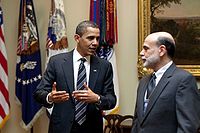
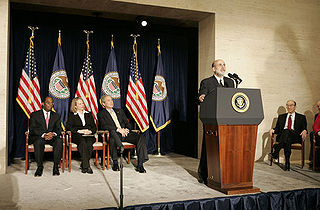















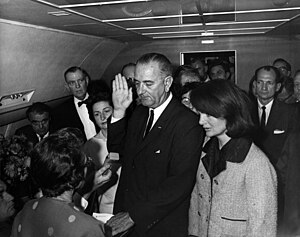
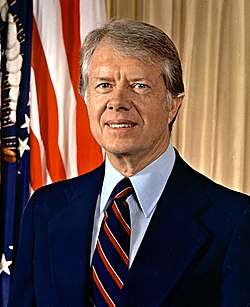


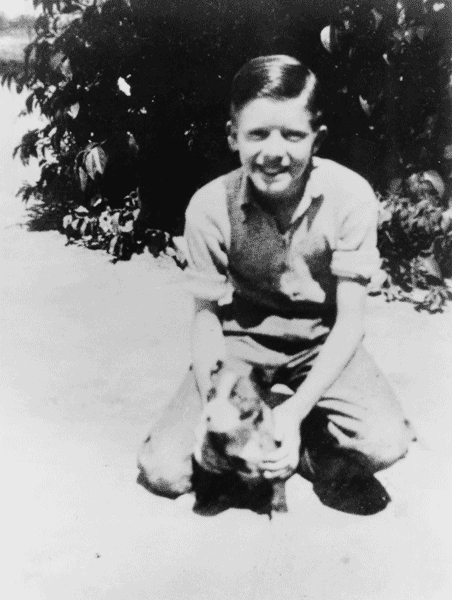






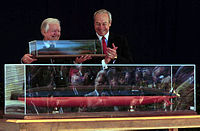

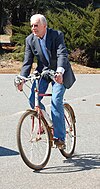




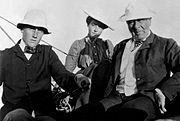

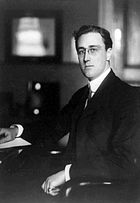
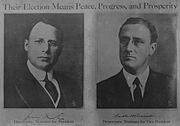
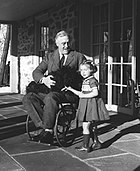
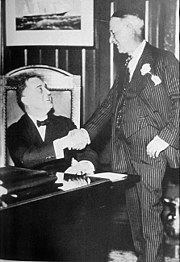


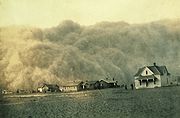
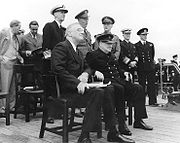




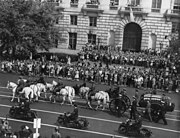






 Bill
Clinton when he was young received a Rhodes Scholarship and later
attended Bilderberg Group meetings, his wife Hilliary Clinton also was
seen attending the 2008 Bilderberg meeting held in Ottowa Canada. Later
on Bill Clinotn became president of the USA twice, and his wife Hillary
Clinton nearky became President of the USA, but ended up in one of th
emlst power positions in USA Politics as Secretary of State and some say
Hillary Clinton is the main representative of the Bilderberg Group in
the USA White House, ans in fact may may more real power in the running
of America than the president Barrack Obama.
Bill
Clinton when he was young received a Rhodes Scholarship and later
attended Bilderberg Group meetings, his wife Hilliary Clinton also was
seen attending the 2008 Bilderberg meeting held in Ottowa Canada. Later
on Bill Clinotn became president of the USA twice, and his wife Hillary
Clinton nearky became President of the USA, but ended up in one of th
emlst power positions in USA Politics as Secretary of State and some say
Hillary Clinton is the main representative of the Bilderberg Group in
the USA White House, ans in fact may may more real power in the running
of America than the president Barrack Obama. The
Rothchild Family...who seem to be healivy involved with the Bilderberg
Group and its sister organisations the Trilateral Commission and the
Council For Foreign Relations
The
Rothchild Family...who seem to be healivy involved with the Bilderberg
Group and its sister organisations the Trilateral Commission and the
Council For Foreign Relations




















